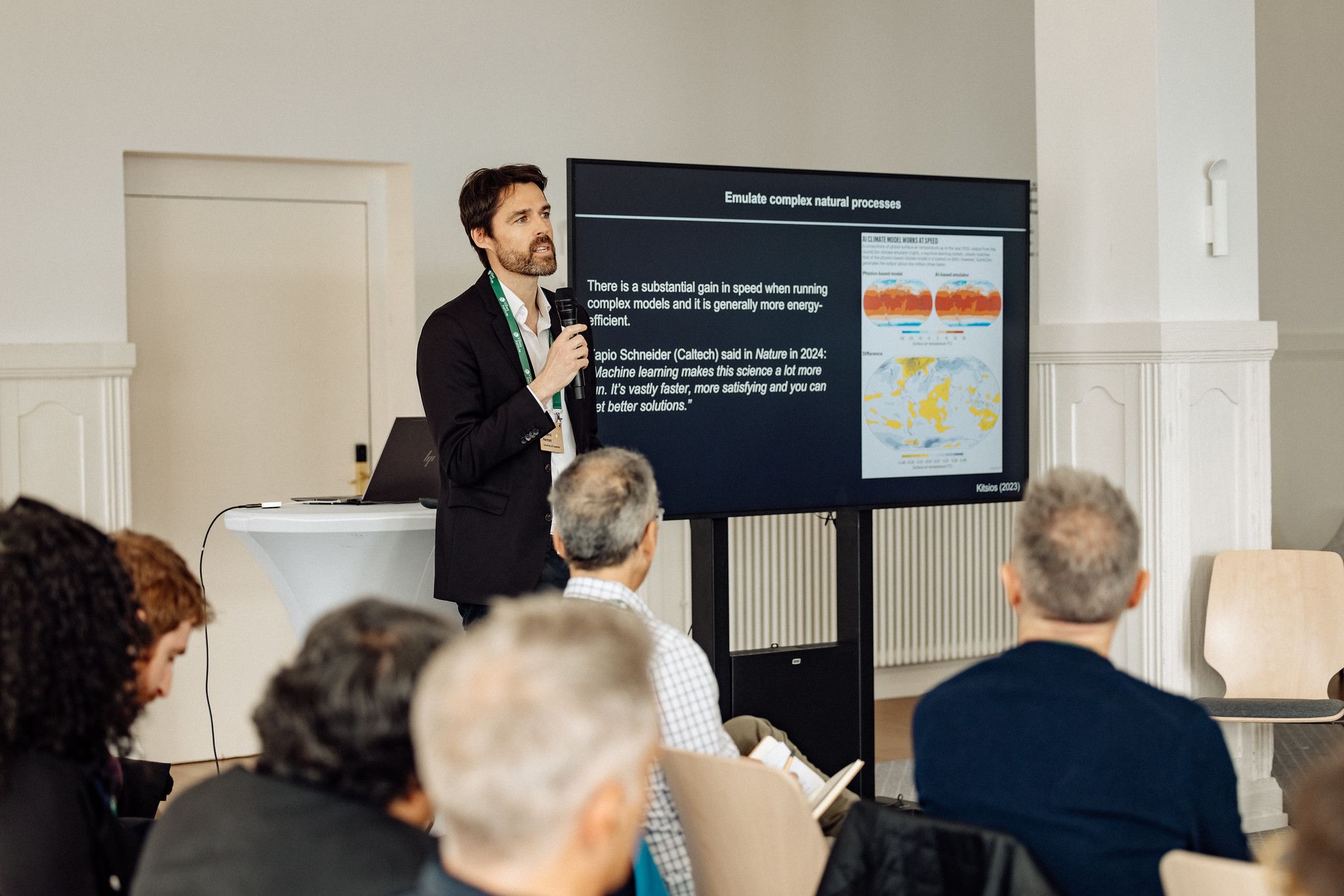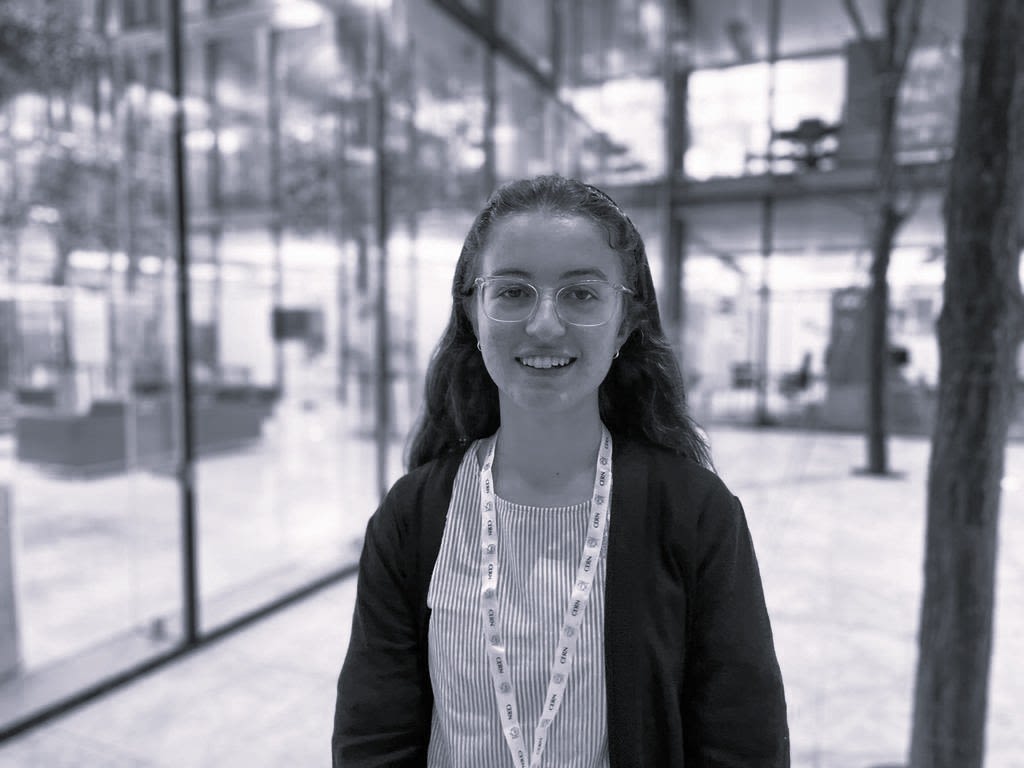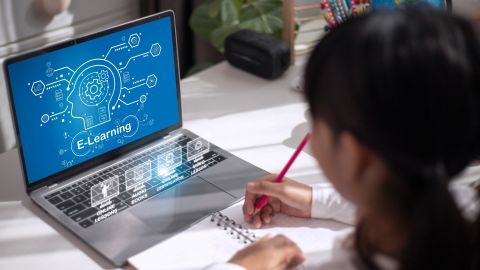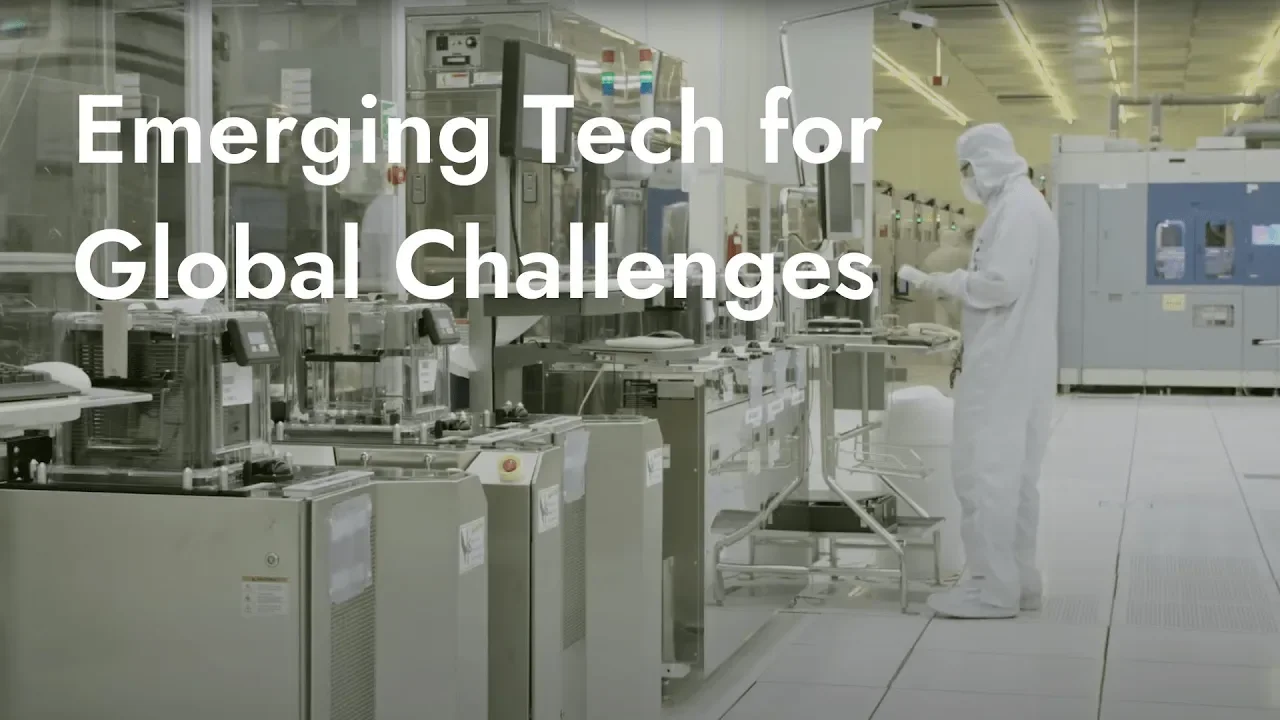Ideas from the Speakers
In a world where emerging technologies are increasingly common, it comes as no surprise that there is a need to discuss the human use of artificial intelligence (AI). With its vast potential to enhance sustainability education, AI offers a powerful tool to drive a turning point in favor of planetary health. No longer the stuff of fiction movies or niche academic interest, AI is now the quiet though increasingly loud engine reshaping how we teach, learn, and understand the world. Four experts in fields directly affected by the potential of this tool discussed the opportunities and challenges of AI.
One expert provided a reality check by highlighting how, in theory, AI is beneficial to us. Because there is no precedent for a tool as powerful as AI, we should use it with caution as it can easily fool us. AI provides the base for a learning revolution with endless possibilities, such as tailoring learning experiences to individual needs, accessing real-world data and scientific information, and improving student engagement with interactive simulations. Nonetheless, and quite ironically, both the scientists who invented the tool and the students who use it are concerned about some of AI’s challenges. For example, it may deter critical thinking and provide wrong data. Yet a balance can be achieved, and AI can be used to enhance the quality of teaching and learning, adapt course material, revisit evaluation procedures, and further promote originality, creativity, and critical thinking.
Another expert illustrated AI’s capacity to imitate natural processes at unprecedented speeds, giving examples of climate modeling. The expert warned the audience of the dangers of ignoring the environmental and epistemological cost of such technologies, linking back to students’ worry about inaccurate data. To balance the benefits and the dangers, we need “AI literacy” and an understanding of how AI works, where data comes from, and the limitations of the models we build.
One expert gave insight into an integrative undergraduate science course that blends biology, computer science, and societal implications. The model encourages students to explore data errors, build their own simulations, and understand bias. This course encourages a participatory and critical approach to AI in science, giving hope for a positive connection between AI and learning.
An additional expert examined the philosophical implications and connection between AI and humans. While AI promises productivity gains and greater access, it also risks increasing inequality and diminishing the human aspects of learning and empathy. What would you think if a machine informed you that you have three months to live? When it was previously only conjecture, today it can be real. This takes away all possible human emotions, raising questions about how we define education, expertise, and common humanity.
There was consensus with this speaker’s statement: “The train is leaving, you either get in, or not.” This encouraged the audience to see AI in a positive light, although many challenges were emphasized.
Insights from the Audience
The audience split into breakout groups to discuss the topics covered and engaged in insightful discussions on the real-world implications of AI in education. Participants shared their views on both the technical and ethical dimensions of this technological turning point. Many questioned how institutions could balance the benefits of AI, such as personalized learning and data-driven insight, with its possible challenges, as AI may create dependency and spread misinformation. Some of the Villars Fellows shared their own experiences of using AI tools like ChatGPT as study aids or writing assistants. While acknowledging the benefits, they echoed the panelists’ concerns about diminished critical thinking and inaccurate information. However, they also highlighted the ability of students to use logic and reasoning to determine truthful content from misleading information, giving hope about youths’ relationship with AI.
There was significant interest in the concept of “AI literacy” and how education systems should assist students in navigating AI critically, with a need to understand sources of data, algorithmic bias, and the limitations of machine learning models. The differences between students and teachers in their relationship with AI were also discussed. While young students play with AI like a “digital friend,” many educators are still hesitant about it.
Inequality was an underlying theme throughout the discussion. Questions highlighted the digital divide between regions with high AI access and those with limited infrastructure. Participants debated whether AI could be a tool to reduce inequality by offering access to quality education in under-resourced areas or if it would, conversely, deepen the gap between the digitally literate and the excluded. Concerns also arose about AI’s role in shaping future learning norms and what we consider an “educated individual”: Should we still assess through essays? What will happen to creativity if AI becomes normal in the imaginative process? Will we still consider the same type of knowledge useful? Some of the experts in the audience warned of peer-reviewed academic processes being handed over to AI, risking the erosion of human judgment and nuance. Despite the complexity of the topic, there was a palpable sense of cautious optimism. A balance can and will be achieved, and as ChatGPT says: “The future of education isn't AI over thought, but AI alongside it—amplifying curiosity, not replacing it.”













